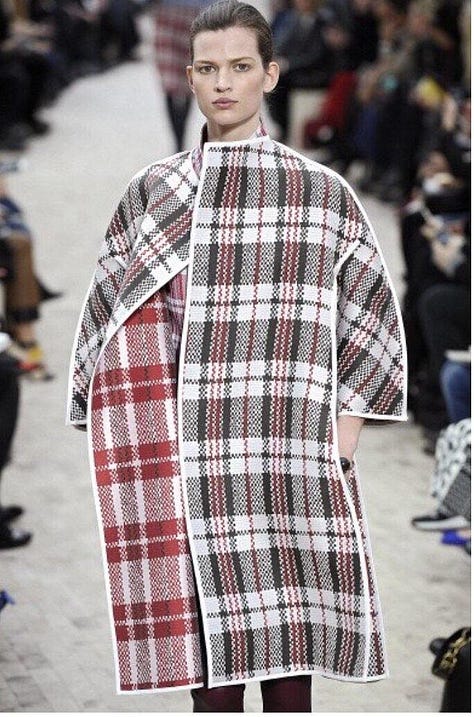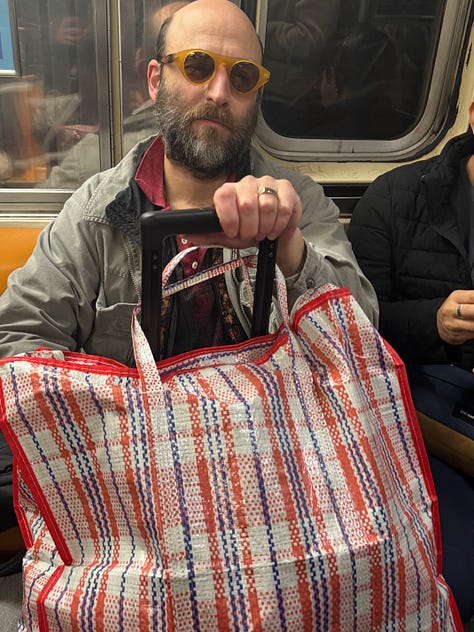How will Americans deal with the disgrace that comes with decline?
lessons from another collapse
There are viral videos coming out of China now of Chinese people mocking Americans, showing off their clean and well-functioning factories and cheap products and telling Americans that they should come out to China and become mules for cheap consumerism: load up on stuff, bring it all back and declare it as “personal property,” and make a killing selling to friends and neighbors. In essence, they’re telling Americans to become shuttle traders…I’ll get to what that means in a second.
The Chinese are definitely feeling a bit of schadenfreude at America’s steep decline. And can you blame them?
Actually, this has Russia 1990s vibes written all over it. With the collapse of the Soviet economy, people did this for a living: They’d take buses or trains or fly overseas to Turkey, Greece, Finland, and China, load up on as much cheap consumer goods as they could carry, and then bring them back home to Russia to resell. This was one of the first basic entrepreneurial activities that regular Russian people engaged in. It helped fill a real need because Soviet factories stopped producing most basic goods and very little could be purchased. But it was also done out of desperation. So many people lost their jobs because of Yeltsin’s privatization of the economy that they turned to whatever they could to make money.
In Russia they were called chelnoki — “челноки” — named after the shuttles in weaving machines that move thread back and forth. In English, these chelnoki were known as shuttle traders.
Evgenia has told me about how they were a huge part of her childhood.
She’d see these women and men all over the city. They came from all over Russia to Moscow by train and airplane to then go on “tourism trips” to foreign countries, bringing back these massive quilted cube-shaped plastic bags filled with goods that they then sold either in Moscow or lugged back to their provincial towns — all in order to make a living. I guess you could call them lumpenbourgeoisie.
She lived next to Luzhniki, a former olympic facility, in Moscow whose grounds were turned into a market with makeshift tents and piles of these plastic bags selling — everything from clothes to microwaves to pots and pans and shoes was sold there. And in the evening this market turned into tochka, a place where prostitutes lined up — meat market where flesh is rented by the hour.
A popular TV show was made in Russia about it recently. Neither Evgenia nor I have watched it (although we should now) but apparently it’s a big hit because a lot of Russians remember those hard days, and many took part in the trade themselves just to provide for their families. It was a business, by the way, in which women played a major role because much of what they were buying abroad were clothes and household items, things with which women were much more familiar than men. And anyway, a lot of men fell into despair and alcoholism after the collapse, and women frequently had to carry the burden of supporting their families. So much for the myth of traditional masculinity.
These bags — these chelnoki — ultimately became a symbol of 1990s collapse hardship. Of course, being cruel and condescending, European fashion houses ultimately turned the bags into an ironic high-fashion item:



If how America and Europe treated Soviet collapse is any indication, Americans are in for a rough handling. I won’t be surprised if Chinese designers will start producing American poverty chic fashion sometime soon, making light of American suffering. And it goes without saying that the Chinese will start doing disaster tourism in ravaged American cities and suburbs, flush with cash, the country now as their oyster, American women throwing themselves at them…
I guess the big question is: How will Americans deal with the inevitable feeling of disgrace and inadequacy that come with decline?
No one takes these things well, and ultimately this kind of communal societal disgrace can lead to the worst kind of traits popping to the surcace — things like nationalism and jingoism and racism. And that’s probably especially true for America, which has conceived of itself as the pinnacle and center of civilization, god’s gift to mankind, while being studiously ignorant of the larger world around, and its own world as well. My sense is that I don’t think this culture is going to take this humiliation with any sort of grace. And the blowback from it will be much worse than whatever happened in Russia. Maybe closer to Nazi Germany? As Evgenia says, Trump is not Hitler. He’s Yeltsin. But what might come after Trump might be closer to a Hitler.
I hope it won’t go there. But it might move in that direction.
—Yasha
PS: People should reread PKD’s Man in the High Castle — an underrated aspect of that novel is that it is about Americans living under foreign domination, and how it made Americans servile and obsequious.
PPS: This is us on Sunday going to our NEFARIOUS RUSSIANS LIVE! event on nihilism and collapse. I guess you could say we’re ahead of the curve. Evgenia and I are well primed to get into the Chinese chelnoki business. (We’ll post a recording of the event for subscribers later this week.)





Having lived through the collapse of the ‘90s in Moscow—watching it unravel from the inside, seeing friends and family endure the economic, social, and psychological toll of a disintegrating society—I want to feel empathy for Americans and what’s on the horizon. But honestly, I feel nothing. I’ve got my popcorn ready, and I’m just gloating.
The answer to the question posed in the title....for me is not very well. Probably deal with disgrace by reverting to something close to fascism.
Trying not to fall into the type of nihilism that you have written about before, but I'm just not optimistic. I see positive signs. But people turning out for Bernie/AOC rallies doesn't equal societal change.